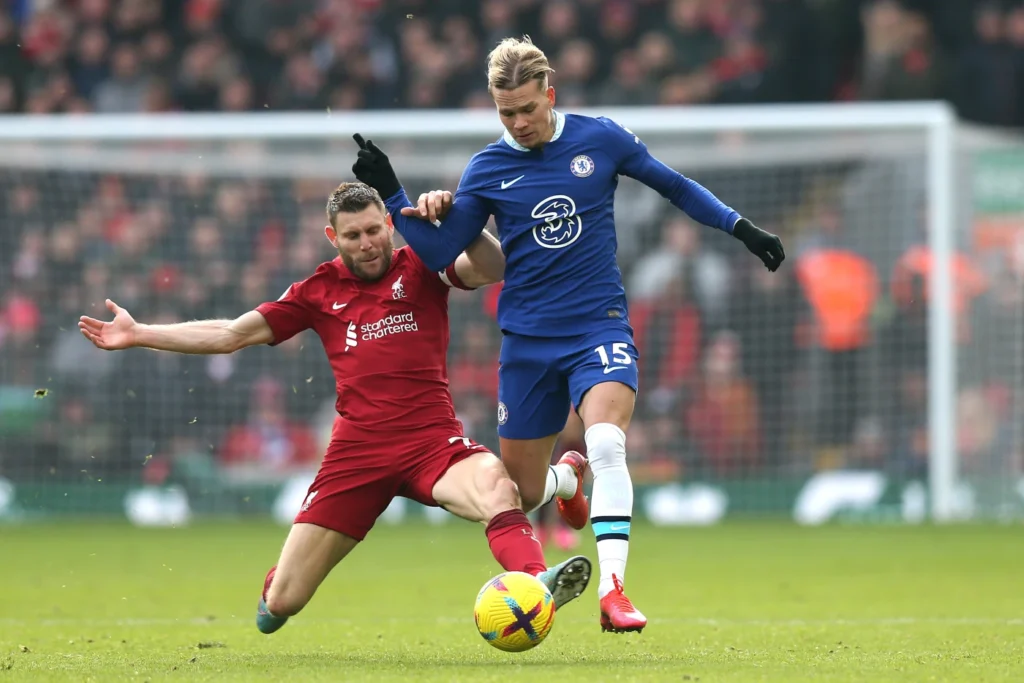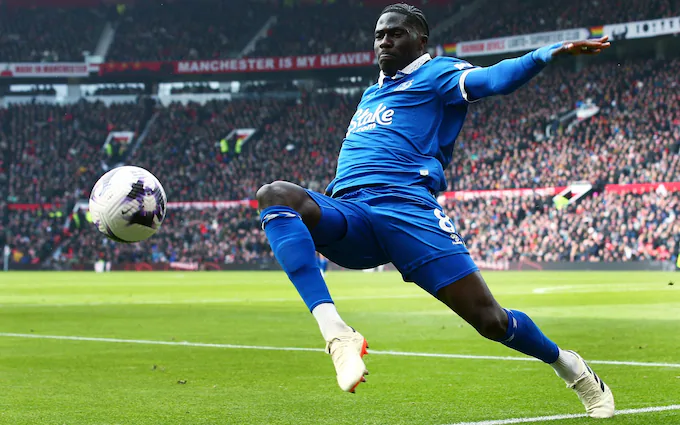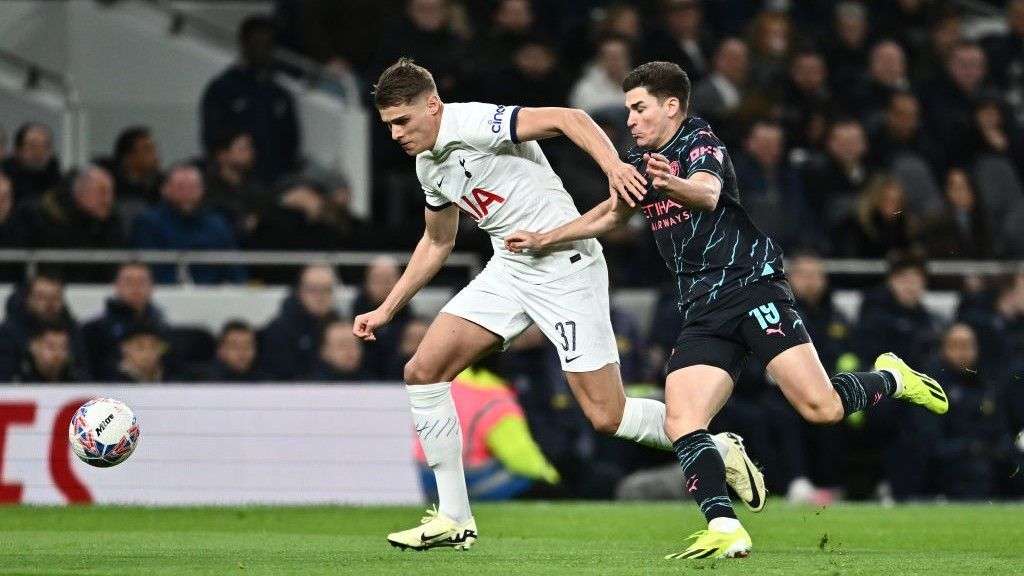Speed is sometimes the essential factor that sets good players apart from great ones in the thrilling business of football. Spectators around the world are always keen to see their best teams play against each other. However, one question always pops up. Who is the fastest footballer?
Speed not only entertains the crowd but can also cause the difference between competitive finish sprint or dependent tackle on the ball line. This paper will investigate the competitors for the title of the fastest footballer, analyze their achievement, and present news making their bright events truly legendary.
Who Is The Fastest Footballer In The World: Top 10 Contenders for the Title
10. Mykhailo Mudryk: 36.63 km/h
He was a speedy young winger from Ukraine, Mykhailo Mudryk. With a top speed of 36.63 km/h, Mudryk’s ability to leg out long distance sprints and draw the most foul-damage on his team.

His mere half-point per game (at worst) makes him even more valuable as he can make plays happen from anywhere in an instant His footwork is one of the quickest on display in this game, which combined with his extra bit of pace can keep any defense at arm’s length whenever he has the ball.
9. Antonio Rudiger: 36.7 km/h
Antonio Rudiger may primarily be recognised for his defensive displays, but he is rapid. That makes him the tenth fastest defender in Germany of all time- and amongst the quickest defenders worldwide with a recorded speed of 36.7 km/h.

Rudiger’s physical appearance means he has a great capacity to cover large areas of grass comfortably, whilst also being able make timely interventions, showing that his pace equates to the necessary ability in order for him not only mark but outrun and nick the ball ahead before potentially dangerous situations arise.
8. Amadou Onana: 36.65 km/h
Top performer Built like a brickhouse, Belgian midfielder Amadou Onana combines physical brute force with exceptional pace.

Onana can blitz through the midfield at top speeds of 36.65km/h, something that sets him apart and helps to see how quickly he transitions for defense to attack in a split second. Allowing him to outsmart defenders and use that quickness as a weapon, never letting off the pace of the game.
7. Anthony Gordon: 36.68 km/h
An attribute that has raised Anthony Gordon into prominence in football’s ranking list is his lightning speed.

The England youth flyer clocked 36.68 km/h while in action, but what makes him even better is that he just does not beat off his markers with speed. The player trackbacks to his team defense when challenged.
6. Dara O’Shea: 36.73 km/h
Irish defender, and jack of all trades Dara O’Shea has hit 36.73 km/h on the speedometer showing his capability to get up sprinting faster than Usian Bolt in what are key moments from both a defensive recovery standpoint or getting into an attacking set-piece quickly.

O’Shea’s pace to defend some of the quickest attackers in the original Hyatt League team makes him one of his side’s most valuable assets.
5. Dominik Szoboszlai: 36.76 km/h
Hungarian midfielder Dominik Szoboszlai is the pick of them all, not least for his blistering pace and neat touches. Szoboszlai also has pace in his locker and can hit up to 36.76 km/h, giving him an ability to exploit space quickly and lead counter attacks.

He is a deadly playmaker who can turn the tide of matches in mere seconds, thanks to his pace and quick wicked vision for goal as well pinpoint quality passing.
4. Pedro Neto: 36.86 km/h
Portuguese winger Pedro Neto is So far, the most consistent performer on this list and that 36.86 km/h top speed has been sustained with pace all season as he showcased his growing talent across a number of games in Portugal’s Euro 2020 campaign.

He can use his speed and dribbling ability to navigate a defense, finishing from all possible angles. But it is in Neto’s explosive pace, from the wings, that mandates a constant threat for any defense he faces.
3. Chiedozie Ogbene: 36.93 km/h
Chiedozie Ogbene, a Nigerian-Irish footballer, topped 36.93 km/h and confirmed himself as a speedster in 2021. When this striker gains his velocity, his rapid acceleration and its preservation for long periods of time leave opponents behind.

He is a dynamic player who not only plays well in offense but also works hard to get back and defend.
2. Kyle Walker: The Veteran Speedster 37.31 km/h
The right-back of England Kyle Walker is still not slowing down, achieving a top speed of 37.31 km/h. The England player’s extreme fast sprints down the side made Walker valuable at both ends of the field, being a crucial factor of defensive and offensive plays.

He can also quickly retreat to provide protection when the defense is under threat.
1. Micky van de Ven: The Speed King 37.38 km/h
The first spot is taken by the Dutch defender Micky van de Ven. With an incredible top speed of 37.38 km/h, van de Ven is capable of roaming the pitch and making vital tackles and ball recoveries across the large areas at an extraordinary efficiency.

Micky van de Ven is not merely the world’s fastest footballer, he puts his rate to excellent use, which makes him one of the linchpins of his team.
Factors Contributing to a Footballer’s Speed
To understand what makes these footballers so exceptionally fast, it’s essential to break down the various factors that contribute to their speed.
Speed in football isn’t merely about running fast, it involves a combination of physical attributes, training, and technique.
Genetics
One significant factor is genetics, some players naturally have a higher proportion of fast twitch muscle fibers, which are essential for explosive speed and quick acceleration.
These muscle fibers contract quickly and generate more power, giving these athletes a natural edge in speed.
Strength and Conditioning
Strength and conditioning training plays a pivotal role. Footballers undergo rigorous training regimes that include sprint drills, plyometrics, and resistance training to build their leg muscles and improve overall strength.
This helps in generating more force during sprints and reduces the risk of injury.
Technique
Running technique is another critical component. Efficient stride patterns, optimal foot placement, and proper arm motion all contribute to maximizing speed.
Many footballers work with specialized sprint coaches to refine these techniques and ensure they are not losing speed due to inefficient movements.
Endurance and Stamina
Endurance and stamina are equally important. Speed over short distances is crucial, but players often need to maintain their pace over the course of a 90-minute match.
Cardiovascular fitness ensures that they can sustain their top speed during crucial moments without succumbing to fatigue.
Nutrition and Recovery
Proper nutrition and recovery strategies are also vital. Ensuring that the body gets the right nutrients, hydration, and rest allows muscles to recover efficiently and perform at their peak.
This includes a balanced diet rich in proteins, carbohydrates, and essential fats, as well as sufficient sleep.
Conclusion
The speed of a footballer is a multifaceted attribute shaped by genetics, strength and conditioning, technique, endurance, and nutrition. Each of these elements plays a critical role in enabling players to achieve the exceptional speeds showcased on the field.
Among the notable speedsters, Micky van de Ven stands out as the fastest footballer in the world, clocking an astounding top speed of 37.38 km/h. His remarkable pace, combined with his defensive prowess, underscores the incredible level of athleticism required to excel at the highest levels of the sport.
As football continues to evolve, the importance of speed remains a key factor in defining the game’s most dynamic and impactful players.



